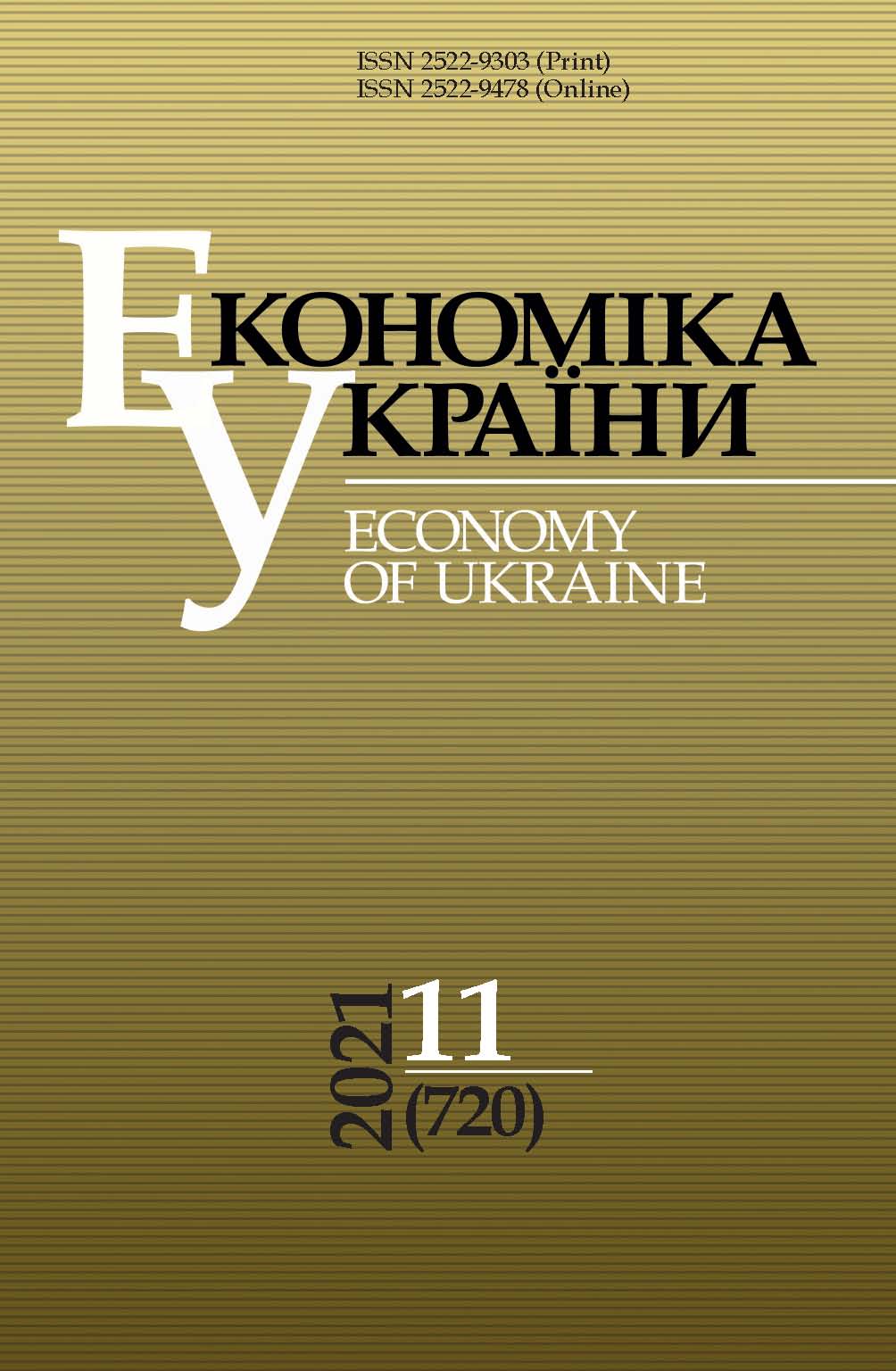DEVELOPMENT OF THE SOCIAL ECONOMY IN POLAND: EXPERIENCE FOR UKRAINE
DOI:
https://doi.org/10.15407/economyukr.2021.11.075Keywords:
social economy; unemployment; employment; social security institutions; average salaryAbstract
The development of the social economy contributes to the well-being of the population, which is one of the main tasks of any state. The existence of certain social problems in Ukraine requires an analysis of foreign practices of implementing social goals to increase living standards. In the context of European integration aspirations, such a state for Ukraine is the neighboring Poland.
To address these issues, the positive experience of social economy development and employment in Poland is analyzed and the possibilities of its application in Ukraine are outlined. The practice of social economy in Poland is considered, Ukraine and Poland are compared on particular social indicators (number of social security institutions, unemployment rate, employment rate, average monthly wage, self-employment level), the directions of social development in Poland are outlined with emphasis on their possible application in Ukraine. Taxonomic methods for determining the social development of Poland and changes in the labor market of both countries are considered. The main determinants of the Polish model of social economy are highlighted: stable economic development, which contributes to raising living standards; low unemployment; developed social infrastructure; increase in average wages; developed private social security sector; labor market stability and its ability to adapt to new challenges.
A number of problematic issues in the development of the social economy in Ukraine are highlighted, in particular, the low level of wages compared to neighboring European countries; high unemployment; low level of self-employment; high level of shadow economy. Based on the analysis of the positive experience of Poland, a number of possible directions of social economy development in Ukraine are outlined.
References
Simakhova A. Economy socialization as a factor in solving modern global problems. European Journal of Management Issues, 2018, No. 26 (1-2), pp. 48-54.
doi.org/10.15421/191806
Yarovaya L. The system of social protection in Central and Eastern Europe. Education of the Region. Politology. Psychology. Communications, 2012, No. 1, pp. 122-126 [in Ukrainian].
Dragomeretskyi V. Social reforms in Ukraine and Poland: Comparison and reality. UP Foundation, August 28, 2018, available at: uapolicy.org/index.php/2018/08/28/sotsialnye-reformy-v-ukraine-i-polshe-sravnenie-i-realnost/ [in Russian].
Nawrocka O. Social benefits, privileges and discounts for Ukrainians in Poland. in Poland, December 16, 2020, available at: inpoland.net.pl/novosti/socialni-viplati-pilgi-ta-znizhki-dlya-ukra%D1%97nciv-v-polshhi/ [in Ukrainian].
Matela-Marszałek W. Zasiłki z pomocy społecznej w 2020 r. (stały, okresowy, celowy). INFOR, December 27, 2019, available at: www.infor.pl/prawo/pomoc-spoleczna/zasilki/3584147,Zasilki-z-pomocy-spolecznej-w-2020-r-staly-okresowy-celowy.html [in Polish].
Chojnacka K.J. The Polish Model of a Social Economy with the Financial aspects and Profits at Background - from the General Theory to Practice. e-Finanse, 2019, No. 15 (3), pp. 29-46.
doi.org/10.2478/fiqf-2019-0018
Medina L., Schneider F. Shadow Economies Around the World: What Did We Learn Over the Last 20 Years? IMF Working Paper, 2018, No. 17, available at: www.imf.org/en/Publications/WP/Issues/2018/01/25/Shadow-Economies-Around-the-World-What-Did-We-Learn-Over-the-Last-20-Years-45583
doi.org/10.5089/9781484338636.001
Downloads
Published
How to Cite
Issue
Section
License
Copyright (c) 2024 Economy of Ukraine

This work is licensed under a Creative Commons Attribution-NonCommercial-NoDerivatives 4.0 International License.



